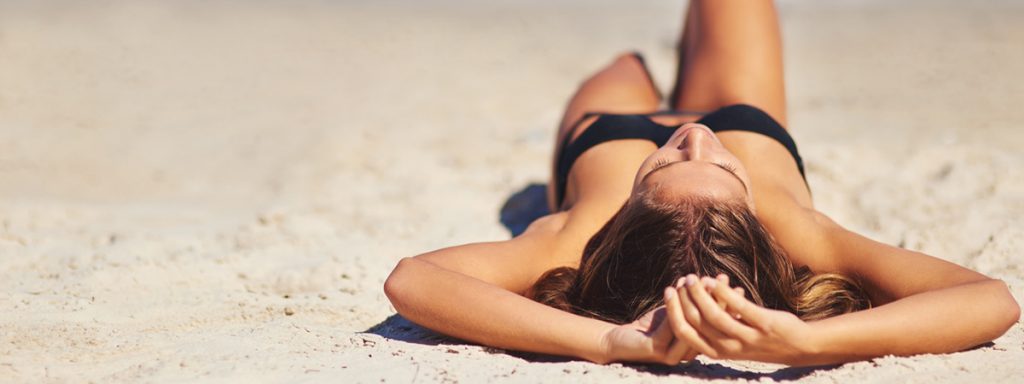Trying to decipher sunscreen labels, what they all mean and how you should be applying this summer necessity can be a minefield. Up your awareness by familiarising yourself with our guide to staying safe in the sun.
Shady days
It’s hard not to automatically associate sunburn with heat but it’s the sun’s ultraviolet radiation that causes sunburn, premature ageing and skin damage, not the warmth from the sun. Which explains why it’s just as crucial to cover up on overcast days. Unlike infrared radiation – the heat we feel from the sun – ultraviolet radiation ( UVA and UVB rays) cannot be felt on the skin. Dermatologists explain sunburn as a toxic reaction to exposure to UV radiation – the heat we feel coming from sunburn is generally attributed to an increase in blood flow to the site.
Know As from Bs
Ultraviolet A and ultraviolet B rays might damage skin in different ways, but it’s important to protect skin from both. Linda Sharrem, Caci skincare expert explains that UVA rays are often thought of as “ageing” rays. “UVA rays penetrate deep through the epidermis into the lower layers of the skin, and cause damage like premature ageing, lines, wrinkles and loss of elasticity,” Sharrem explains. UVB rays are the ones that cause sunburn and cause a greater risk of skin cancer, though recent studies have shown that UVA rays increases the damaging effect UVB has on skin. Always buy broad-spectrum sunscreen which will shield skin from both UVA and UVB.
Make a date
We shouldn’t let our skin sizzle over summer, nor should we leave our sunscreens to smoulder in the sun. Always store sunscreen somewhere cool and out of direct sunlight as exposure to heat can reduce the effectiveness of formulations. “Most sunscreens are lying around in the sun while we’re at the beach,” says Shareem, which is why she recommends checking the packaging for expiry dates and replacing sunscreen yearly to ensure full protection.“
Getting physical
Sunscreen formulations fall into two camps: physical and chemical. Physical formulations contain active mineral ingredients, zinc oxide and titanium oxide, sit on top of the skin and work by reflecting both UVA and UVB rays. Chemical formulations, on the other hand, are more common and work by penetrating the skin and absorbing harmful rays. As for which formulation is better, a lot of it comes down to personal choice. Mineral formulations work quicker but because they sit on the skin, they need to be reapplied more frequently especially if perspiring or swimming.







